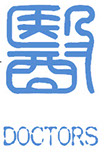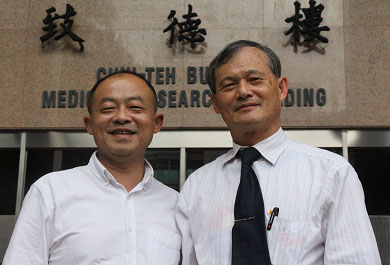

Taiwan Doctor
In Taiwan, the medical profession is composed of practitioners who have the same occupation, for it is extremely hard to become a physician. The medical study process is up to six or seven years, combined with the internship stage. Therefore, it has become a quite unique career community.
In Taiwan, you have to take a medical school exam at first, finish the study in medical school, go through internship, and then you are allowed to take the exam for physician's licenses. The test contexts are regard to the twelve domestic accredited medical school, according to what These school has taught. In Japanese occupation times, there are various pipelines, such as surgeons, to become a physician, which is fairly uneven. After the dedication over the past years, we could finally guarantee the quality. Nowadays, we have a thorough training system with clear sources and backgrounds of physicians, which is as obvious as Taiwan's food producing process.
Taiwan doesn't accredit certificates of physician's in mainland China because Taiwan medical school graduates aren't able to practice medical treatment at the age of 35. It was utterly not Taiwan government's wanting to accredit the speed-up educational program in mainland China. To promote cross-strait medical interacts, total amount control is a marvelous way. Annually, the medical center can apply for blank spaces only for mainland born citizens. After the medical education in mainland China, those physicians should return Taiwan and offer aid to Taiwan-funded hospital to tackle with the manpower gap. This way, Taiwanese physicians won't have to practice across the sea.
When it comes to the heritage of physicians, Dr. Deng Zhao Feng believes that medical school in Taiwan is outrageously tough to be recruited. Consequently, quite a few doctors in Taiwan look forward to their children taking medical education abroad like Europe, America, and China.
Dr. Deng analyzed that studying medicine in the United States is possible since English is a universal language; studying medicine in Europe is a lot more difficult, for the language and culture are not compatible; in the future, Taiwan senior high school students are more likely to study medicine in China. They have the right to conduct service in Taiwan, however, the government is worried that students who study in China medical education system is not yet allowed to take test for physician's licenses and practice medicine in Taiwan.
Dr. Deng advised the government to open up two-year internship for mainland China medical students. This way, they can build up a friendship network and help each other up. Taiwan can help cultivate intern physicians, promoting the exchange of medical sources.
Young physicians prefer emergency department and psychiatry department because however tough the work is, you won't be disturbed when you are not on duty. Therefore, a stable live quality is guaranteed. The above mentioned two departments both required only 12 days at work. Obstetrics and gynecology department has more female workers, around 80 percent being women.
The motivation to practice medicine isn't only for the high social status or making a large amount of money. To cultivate a physician, it takes averagely 33 years plus a three-year practical experience, not to mention the written and oral exam for the research physicians. Physicians could really make some money at 36. Basically, a physician can make 3 million dollars per year. However, graduates who study in science and technology or in finances and economics can make money before they're 30. Obviously, they could have stabler life qualities.
Medical community of cross-strait exchanges information frequently. The picture above is that Dr.Xin, director of Fujian Provincial Hospital Emergency Center and and Dr.Teng, poison physician in Taipei Veterans General Hospital explore and exchange issues.

Home